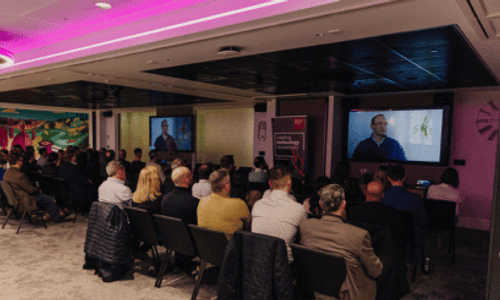
All News & Insights
Tech Flix: The AI Skills Paradox - Leeds Premiere
On the 26th February, legal firm Mills & Reeve welcomed the Harvey Nash Leeds team to their offices as we screened our latest ‘Tech Flix’ documentary,...
Tech Talks: Shirin Krall, founder, MARBL
The Launch Decision That Sparked Cease-and-Desist Letters: Regulating a $95B Industry
Medical aesthetics is a $95 billion industry, yet it remains sho...
Tech Talks: India and Portia O’Connor, Founders, Linda AI
Why We Cloned Our Dad’s Receptionist: The Story of Linda AI
From Goldman Sachs traders to health-tech founders, sisters India and Portia O’Connor are ...
Why your next data role demands AI skills
Artificial intelligence is reshaping how organisations operate, but the reality behind the AI conversation is more nuanced than the headlines suggest. Many businesses are racing to be seen as “AI organisations”, often before they have a fully formed AI strategy in place. What they do know, however, is that AI capability has become a differentiator and data professionals sit at the centre of making it work.
Tech Talks: Napala Pritini, Founder, Habitual
In The Middle Of The Ozempic Gold Rush Habitual Refused the “Easy” Revenue: Find Out Why
GLP-1 medications like Ozempic and Mounjaro have changed the ...
Tech Talks: Beth Paretta, VP, Formula E
Beth Paretta Shares The Next Step in Formula E's Silent Revolution
The "silent" revolution is getting louder, and faster. Beth Paretta, VP of Sporting...
Tech Talks: Matt Austin and Ryan Lovelock, Founders, SPORTL
Subscription Fatigue Shouldn't Be Part of Your Fitness Journey
Matt Austin and Ryan Lovelock left the Bank of England to solve a modern problem: subsc...
Tech Talks: Marijus Briedis, CTO, NordVPN
We Forgot the Basics of Cyber Hygiene: NordVPN's Human Firewall Warning
NordVPN CTO Marijus Briedis argues that while the tech world sprints toward AI...
AI’s challenge for entry level roles: all change?
‘AI is killing junior jobs’ misses important nuance – but you still need a strategy
Get in touch
If you're looking to secure your next role or make your next best hire, we'd love to help. Get in touch to speak with one of our consultants today.









